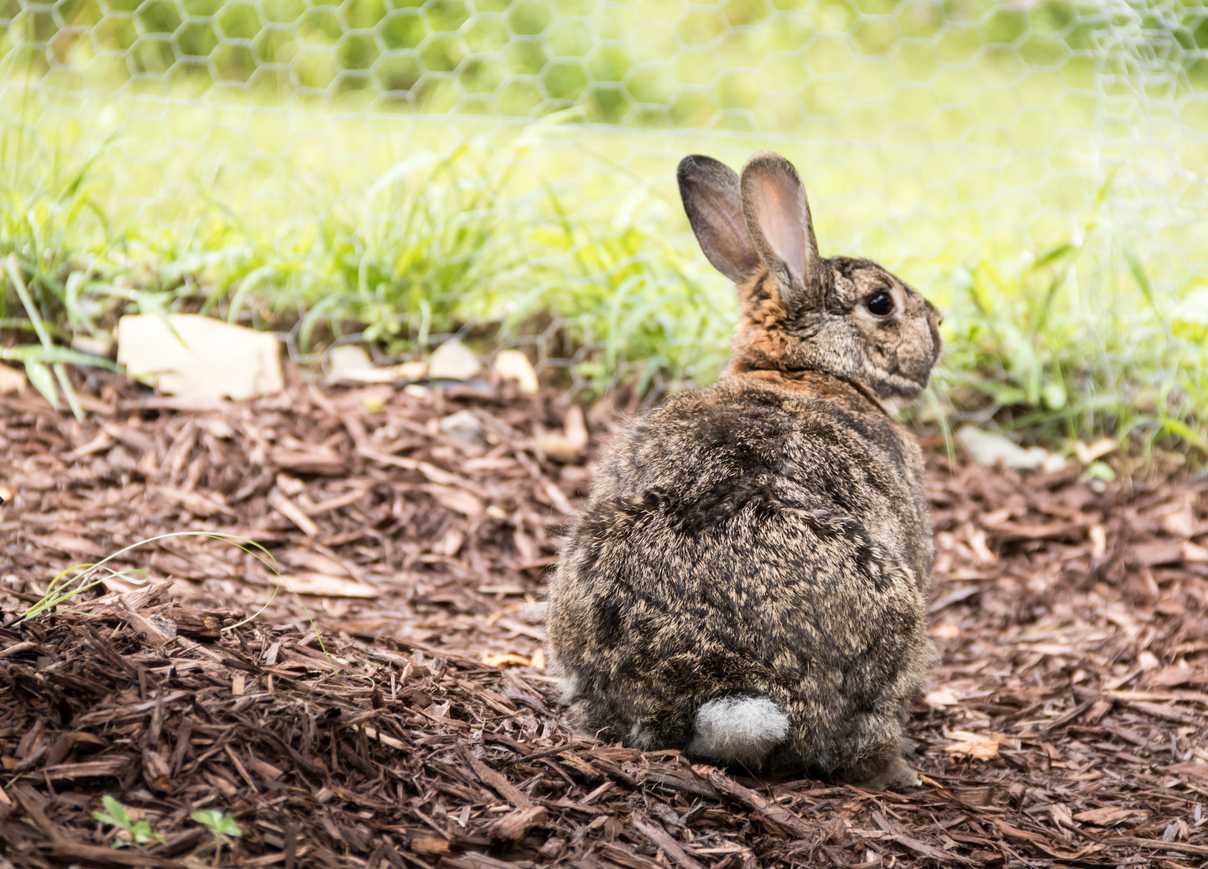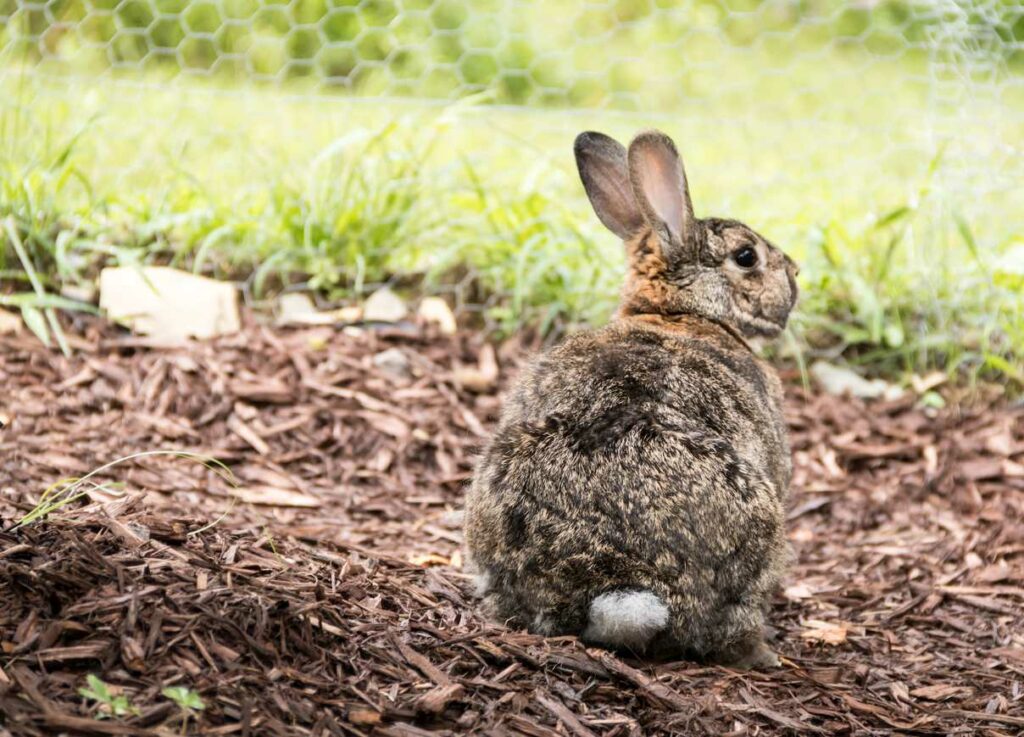Rabbit Manure Compost – How To Make And Use Rabbit Manure Compost
Rabbit manure compost is one of the most nutritious and easily accessible organic fertilizers you can get your hands on. Whether you grow rabbits in your backyard or you can get some rabbit droppings from your brother-in-law’s rabbit hutch, it’s easy to make rabbit manure compost.
Unlike other types of organic manure, this compost is rich, versatile, and mild on the most sensitive roots. And if you’re worried about the smell, well, you shouldn’t be. Rabbit manure is odorless and dry making it convenient to handle and dispense without much fuss or health concerns. Read on to learn more about the benefits of this rich fertilizer and how to make it and use it in your garden.
Benefits of Rabbit Manure Compost
To say that rabbit manure compost is nutritious to the garden plants doesn’t even start to describe the many benefits of this versatile material. If you have decent gardening experience, you know the value of slow-release fertilizer that doesn’t burn the roots of the plants. That’s where this compost comes in handy. Here are some of these benefits.
- It is packed with nutrients. This compost has more nutritional value than other organic fertilizers that you get from cow or horse manure.
- You can use rabbit manure fresh. It’s not a hot material and even without composting, its nutritions are easily available for the roots.
- It doesn’t smell or make a mess. You can spread the compost around the plants and your garden won’t smell any different after the application.
- This versatile compost works with different types of plants from vegetables to ornamental plants and flower beds.
- Rabbit manure is free of seeds of invasive plants. Since rabbits kept in a hutch are fed clean food, their pellets don’t contain weed seeds that could infect your garden. This is in contrast to sheep or cow manure which often contains seeds that grow and spread in the soil.
- It is inexpensive. For the most part, people who grow rabbits tend to throw away the manure. They’d only be too happy for you to take it off their hands.
- Using rabbit manure compost is environmentally friendly since it’s easy to make and doesn’t contaminate the soil with chemicals or residue.
Rabbit Manure Compost Compared to Other Manure
We mentioned in passing that rabbit manure compost was more nutritious than other types of manures that you get from animals. But this statement needs to be corroborated with scientific evidence. And that’s what we’ll do here. The following table sums up the NPK values of rabbit manure as well as that of other animals.
***********************************************************
|
Manure Type |
N (Nitrogen) % | P (Phosphorus) % | K (Potassium) % |
Release Speed |
| Rabbit |
2.4 |
1.4 | 0.60 |
Medium |
| Poultry |
1.5 |
1 | 0.50 |
Fast |
| Horse |
0.70 |
0.30 | 0.60 |
Medium |
| Sheep |
0.70 |
0.30 | 0.60 |
Medium |
| Cattle |
0.50 |
0.30 | 0.40 |
Medium |
| Pig |
0.80 |
0.70 | 0.50 |
Medium |
***********************************************************
As you can see from this table, rabbit manure has a high concentration of nitrogen (N). Nitrogen is crucial for the overall health and growth of the plant. From leafy green veggies to perennials and annuals, nitrogen makes the leaves look lush green.
Phosphorus (P) on the other hand is important for flowering plants since it turns solar energy into chemicals. Phosphorus-rich soil often produces brighter blooms and healthier plants. Here too rabbit manure has the highest value over all other organic animal manures.
It’s also rich in potassium (K) which helps the plants fight disease and resist stress. Rabbit manure has the same amounts of potassium as that of sheep and horses although it’s rich in this mineral than cattle, poultry, and pig manure.
Before we move on, we need to mention the release speed of this manure. It has a medium release speed which is comparable to all other organic manures and only lags behind chicken manure which has fast release. That in itself is a good trait. In most cases, you’d want the manure to stay in the soil and feed the roots slowly over a period of weeks at a time.
How to Make Rabbit Manure Compost
Even though rabbit manure is not a hot material that you can use directly in your garden, many people prefer to process it first. In many cases, this is ideal since you might not like the idea of handling rabbit poop every time you want to fertilize your rose garden. That’s where composting the manure comes in. Here’s how you can make rabbit manure compost in easy steps.
- Collect the rabbit poop from under the hutch making sure it’s not contaminated with seeds of invasive plants.
- Pour the rabbit manure into the compost bin.
- Add the same portion of wood shavings and straw. These organic materials help break down the manure and when they rot become good food for the worms.
- You can use other leftovers from the kitchen as well as rotten leaves, mowed grass, and food scraps to speed up the fermentation.
- Don’t add any citrus-based material or coffee grinds since they are toxic to the bacteria that break down the manure.
- Mix the contents well using a pitchfork.
- Water the mixture using a garden hose. Get the manure good and moist without overwatering it.
- Add earthworms or red wriggler worms to the pile to speed up composting.
- Cover the bin with a trap and keep it in a protected area away from the cold wind. Keep the bin on the ground to make it easy for the worms to move in and out.
- Stir the manure every two weeks and water it to keep it moist.
- Whenever you have more food scraps or rabbit poop, add it to the pile, stir and water it, then cover it with the tarp.
- It will take anything from a few months to a year for the manure to compost and become ready for the garden.
How to Use Rabbit Manure Compost in your Garden
The beauty of rabbit manure compost, if there’s such a thing as compost beauty, is that it’s highly versatile. You can apply it to various plants and in different situations and for the most part, it’s quite safe and effective. Here are a few ways you can apply this rich compost in your garden.
Top-Dressing
This is the easiest way to apply this manure. Just spread about one inch or less of the stuff around the base of the plant without coming in contact with the plant itself. After you water the soil, the slow-release fertilizer will find its way to the roots of the plant where it will keep them nourished for many weeks. After you apply the compost, wash your hand thoroughly. It might be safe for the plant, but the bacteria in the compost shouldn’t make their way to your food.
Mix it in
In addition to spreading over the topsoil, you can also mix this nutritious compost with your potting soil to improve its drainage. You can also apply it to the soil in your garden. Use a hoe to break the soil and add a generous portion of rabbit manure compost to the mix. The only thing to keep in mind here is that this compost is rich in nitrogen. So make sure your plants need this much nitrogen before you add it to the soil or potting mix. Otherwise, you might end up with more leaves and stems than flowers as is the case with some flowering perennials.
Safety with Compost
It’s true that rabbit manure compost is safe to use, however, this is still fermented material packed with germs and bacteria. Agricultural experts recommend that you age the compost for at least 4 months before you apply it to veggie patches. That’s enough time for all the germs and pathogens in the manure to die making it safe to apply.
This applies to plants with edible roots such as carrots, beets, and lettuce. They come in contact with the compost in the soil which increases the chance of the pathogens ending up on your kitchen table. Always wash your veggies well and use a few drops of vinegar in the water to remove all traces of the fertilizer from the food.
Also, make sure to apply the compost to the soil and only the soil. Avoid sprinkling it on the leaves, stem, or flowers of the plant. This could burn the leaves and ruin the flowers. Not to mention that the bacteria in the manure could start a fungal infestation on the leaves.
Other Uses of Rabbit Manure in the Garden
If you don’t have the patience or inclination to compost rabbit manure, that’s no reason to throw away this precious material. You can still use it in the garden right in its current shape and form. Fresh off the rabbit hutch, so to speak. Here are some of the uses of rabbit manure.
- Direct Application: Just collect the rabbit droppings off the hay in their hutch and sprinkle the pellets around the garden. It won’t burn the roots as it is slow to release its nutrients into the soil. If you have a problem with flies or beetles that swarm over the manure, you can bury it a few inches in the soil. Either way, the pellets have no odor so your garden will not smell funny after you use the manure.
- Transplanting: When repotting or moving a transplant to a new spot, drop in a few pellets in the hole. They give the new plant a good start and feed the roots until they established in the soil.
- Tea for Crops: If you have a farm or grow crops, you can make rabbit manure tea and feed it to your crop. Just soak two cups of the manure in 5 gallons of water for about 5 days. Use it as a liquid fertilizer when you water your crops.
- Food for Worms: Earthworms and red wriggler worms are important ingredients of vermicompost. Cleanse the pellets by treating them with high temperature first before feeding them to the worms.

